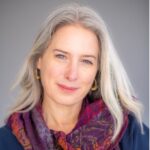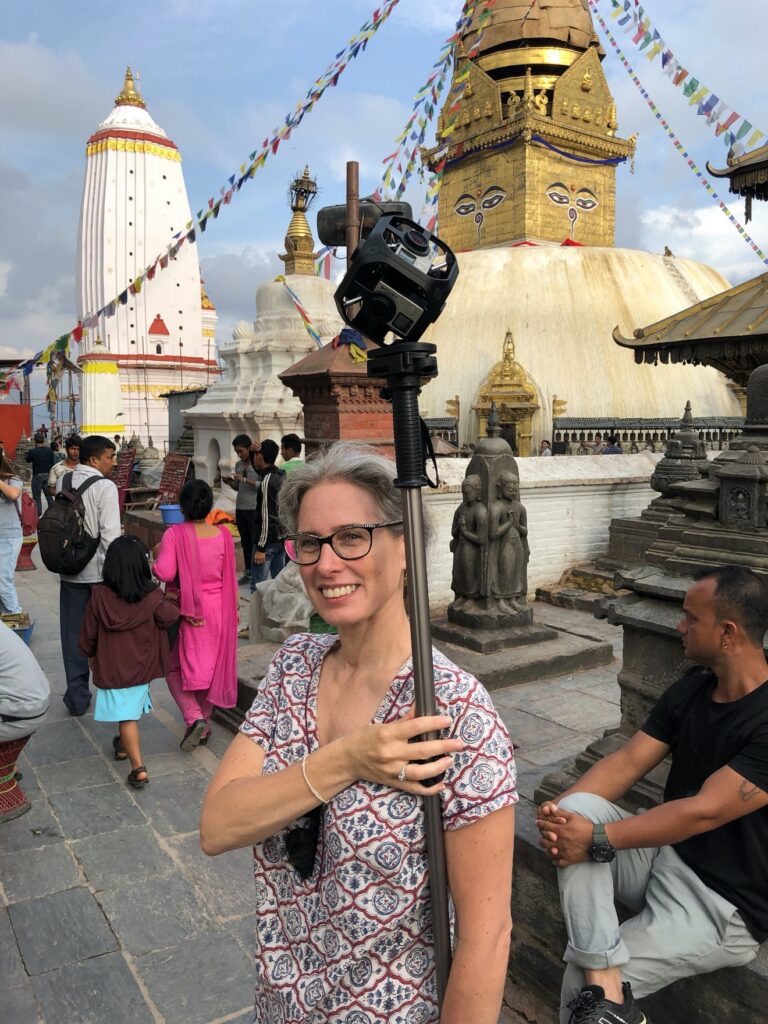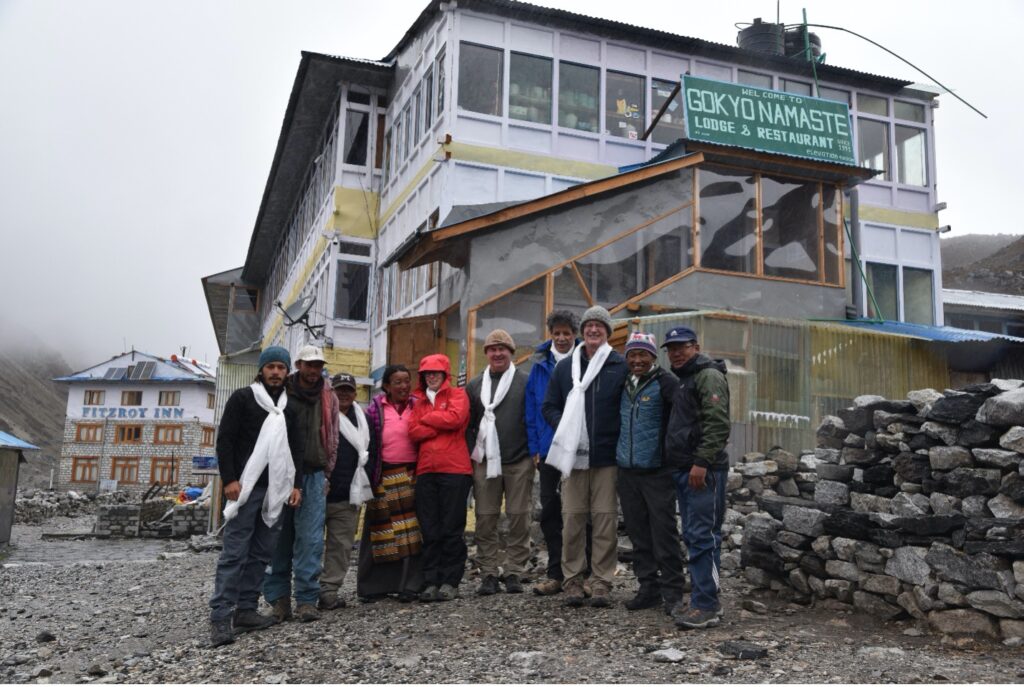 Department of Religious Studies
Department of Religious Studies
Lauren G. Leve is Associate Professor in the Department of Religious Studies. She studies the political and cultural dynamics of religion in South Asia using ethnographic studies of religion as a window into broader issues of local and global life. The majority of her research takes place in Nepal where she has worked on development, NGOs, and women’s empowerment in addition to, and as they intersect with, Buddhist modernism and the growth of Christianity. Her participatory work goes back to the nineteen-nineties and continues in new forms responding to social, political and climate changes, and in the wake of the 2015 Nepal earthquakes.
How did you start doing participatory research?
Dr. Leve first became interested in participatory research while in graduate school. Prior to starting graduate school, she was hired by an international NGO to conduct an evaluation of a non-formal women’s literacy class in rural Nepal. At this time, she was involved in fairly conventional development research. But when she was asked to return to the same community and assess the impact of the program on women’s empowerment several years later, she found the usual ways of conceptualizing and measuring empowerment in development surveys was insufficient. Instead, she brought together a team of girls and women who had grown up in the community, including several who had participated in the literacy program themselves and then transitioned into formal schooling. These women had embodied understanding of the local situation and personal experience of the issues at hand. Together this team developed a nuanced, culturally-appropriate survey. Ultimately, this experience demonstrated to Leve that engaging research participants as partners on research projects can yield a much higher quality result and understanding.
What are your current participatory projects?
Currently, Dr. Leve has two projects in Nepal that incorporate participatory methodologies. The first is a digital humanities project collaborating with Nepali Buddhists and community-based heritage activists to create 3D and VR visualizations of Himalayan Buddhist sites and annotate them with practitioners’ narratives. Working together means that Leve can help develop the technological knowledge and qualitative research skills of community members as they pursue a common goal of preserving the histories and values embodied at these religio-cultural sites and making them accessible both locally and globally. Her second project, based in the high altitude Solukhumbu district, aims to elevate indigenous perspectives in scientific research. It emerged from her recognition that the ways international climate scientists conceptualize the natural environment conflicts with the understandings of local Sherpa Buddhists who view the land through a religious lens that prohibits certain actions (like climbing particular peaks or entering the water of some lakes) that scientists may not imagine to be problematic. This difference in worldviews, and the perceived disconnection between scientists’ secularized aims and the community’s religous concerns, can lead to conflict between the two groups. Leve’s work seeks to support the community in their efforts to educate scientists about local visions, values, and ethics, and to facilitate communication between scientists and community leaders in order to promote more inclusive scientific practices.
How does participatory work relate to your teaching?
Dr. Leve periodically teaches an ethnographic methodologies course which highlights participatory approaches and will be co-teaching the GCPR Certificate’s core course, Decolonizing Methodologies, in the Spring of 2022.
See images of Dr. Leve’s fieldwork below.

Dr. Leve recording with the 360 video at Swayambhunath Stupa for the Buddhist Cultural Heritage Project.

Dr. Leve with the scientists and some of the Sherpa community of Gokyo village, Nepal, the site of the contested lakes for the climate change project. This crew has completed work for that particular trip and is about to set off on the hike to return home.